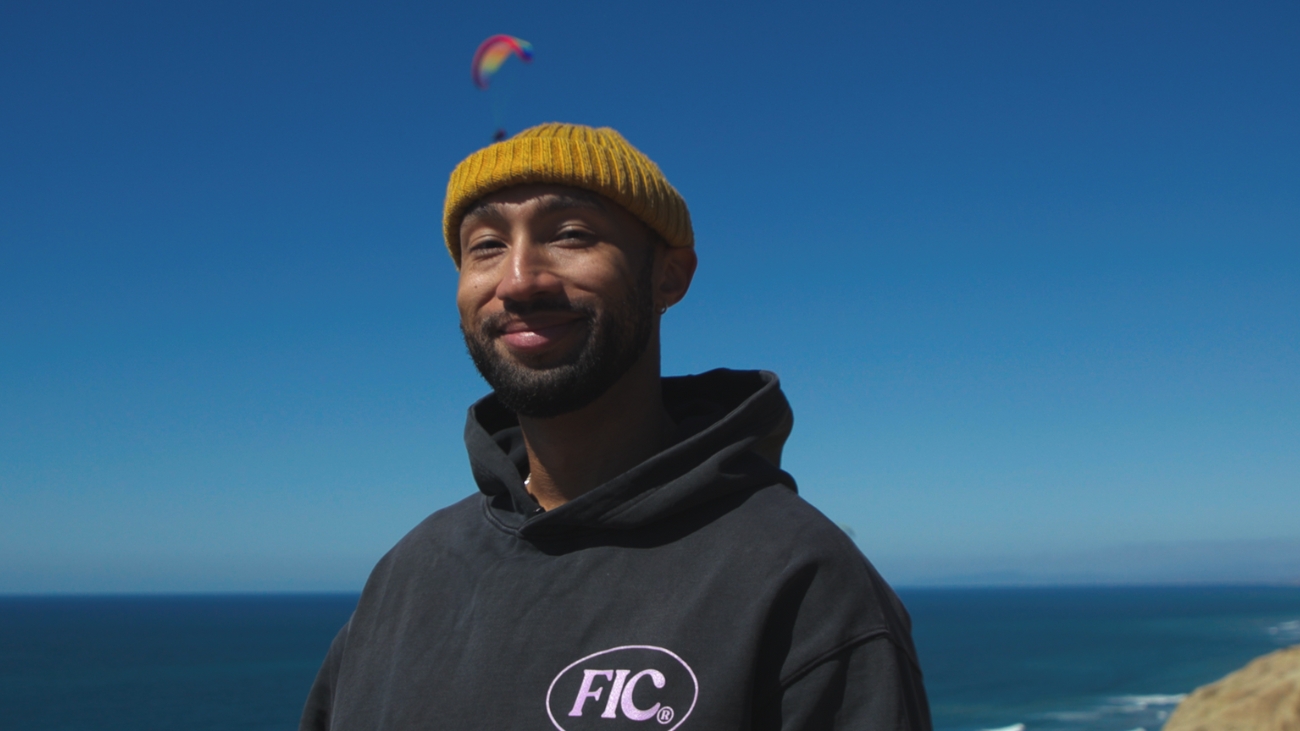
Erwin Hines calls himself an artist first, designer second, and creative director third. From his Future Is Color Studio in Barrio Logan, to the Open Gym restaurant group — both grown in San Diego —, his work springs from a specific intersection: Black and Filipino, Cleveland-raised, identity discovered in layers. He knew his Blackness early, with his parents as guides. The Filipino side came later — an unfolding that redirected everything. He walked away from a conventional career to build something else: music nights, dinner series, wearable art that sparks conversation. For Erwin, “Future Is Color” isn’t a slogan as much as a structure. More spectrum, less center, and building community that doesn’t wait for permission.

When an insecure Korean American boy meets an international K-pop idol who looks just like him, they decide to switch identities. Click the video to watch SEOUL SWITCH.
.png)
Inspired by Miss Koreatown pageants based in Los Angeles in the ‘80s-‘90s, this series features 3 mixed-race Koreans to re-define the concept of beauty for a Korean diaspora. As Koreatowns formed across the U.S., the beauty pageant was a rare occasion for immigrants to gather as a community to celebrate beauty and kinship, and to educate Americans about Korean culture. The sashes reference the various stages of Korean immigration and farmwork carried out by early immigrants - “Miss Sugar” (sugar cane plantations in Hawaii), “Miss Orange” (citrus groves in California), and “Miss Cabbage” (cabbage farms for kimchi making). Los Angeles, as one of the most diverse cities in America, provided a fertile ground for the Korean community to grow and create its own sense of identity, characterized by cultural exchange. Click the video to watch AMERICA FEVER - MISS KOREATOWN.

Two Asian-American teenagers meet in the bathroom of a Chinese restaurant while having dinner with their families. Click video to watch LUCKY FISH on Vimeo.

Following a relapse into anxiety attacks, Elias treads the recesses of his mind to get back to his loved ones. Click video to watch THE MARTYR OF HUDSON YARDS on Vimeo. Content warning: This film addresses issues pertaining to mental health crises and self-harm.

From Grammy nods to industry accolades, Nikita Chauhan is a force to be reckoned with. Based out of the UK, but managing influential artists across the world, from India and West Africa, back to London, Nikita has navigated the doubt, rejection, and constant need to maintain vision, with unwavering determination and a deep-rooted faith that she inherited from her grandparents. This is a story about success, and learning to cultivate the resilience needed to be a boss. But it’s more than that: it’s a story of legacy, one that finds the softer, often hidden strands that weave through the DNA of the people we admire most. Discover the inspiring story behind this young mogul in As Above, So Below.